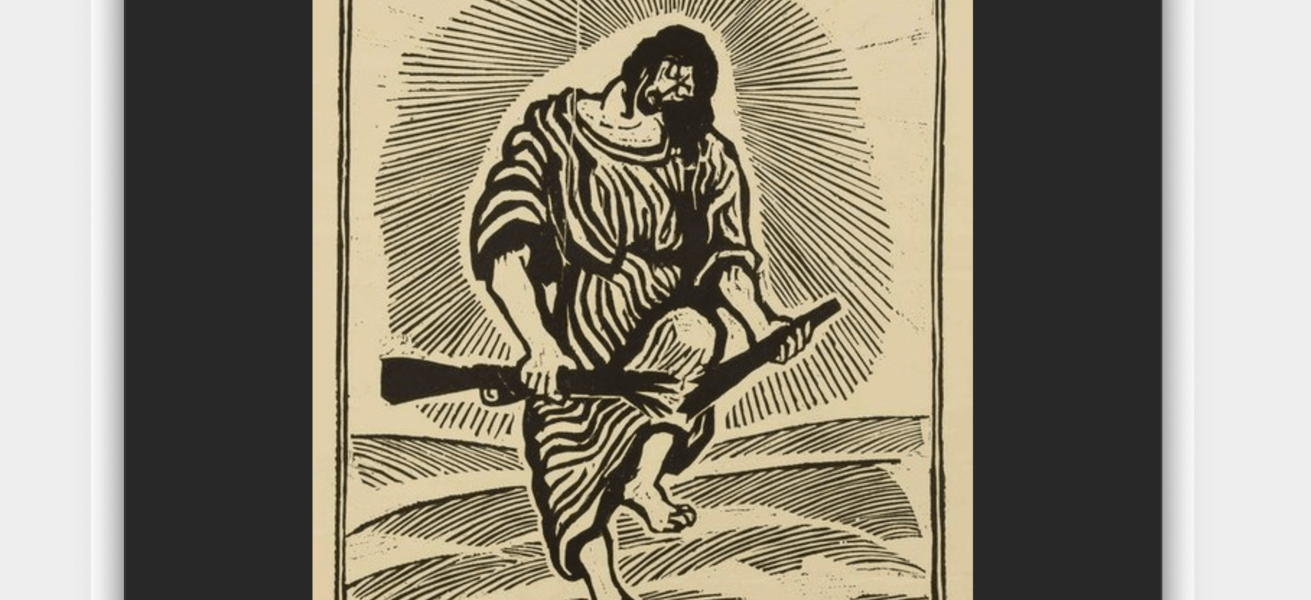Now Reading:
The Politics of Jesus, by John Howard Yoder
I have gotten about 40 to 50% of the way through the book by now. For those who don't know, John Howard Yoder was a Mennonite theologian who taught at Notre Dame and the Mennonite seminary in Elkhart and wrote many books during his academic career. One of his noted students is Stanley Hauweras. Yoder himself was a student of Karl Barth at the University of Basel.
The Politics of Jesus is perhaps Yoder's best known book; he published it in the early seventies.
I liked the first chapter very much, for a beginning. He is good at articulating the positions and arguments of others. In the first chapter of Politics of Jesus, Yoder lists off a number of different arguments mid and late twentieth-century Christians have given for why the life and teachings of Jesus are not of immediate practical, political relevance. Yoder also clearly distinguishes his own project from the then-popular notion of Jesus as a generic political revolutionary to whom one can appeal in support of whatever radical political views one wishes, and from a "WWJD" model of moral discipleship, which looks elsewhere (e.g., natural law) for one's ideas of what right conduct is, but uses Jesus as a motivator for doing the right thing no matter how unpopular or inconvenient it might be. Yoder is interested in drawing a concrete, socio-political Christian ethic out of the teachings of Jesus--and he argues for continuity of such an ethic across the teachings of the New Testament writings.
In the next couple of chapters he quickly outlines the message of Jesus in the Gospel of Luke in broad strokes, and connects it to the restoration of the Jubilee year in the Hebrew Law. (Every seventh year, Israelites were to (a) not farm their land and trust to God to provide for their needs by an abundant crop the sixth year, (b) release all indentured servants/Hebrew slaves, forgiving their debts, and (c) restore the former slaves to their ancestral land which they received under Joshua in the original conquest. Yoder argues that Jesus' gospel was in essence a declaration that God wanted His people to put the Jubilee year into practice as a community, with all of its economic implications, together with even more radical injunctions such as loving one's enemies. That the Jews were not in a position of political dominance in Judea and Galilee was irrelevant, as God's people are to trust Him to take care of military and political victories--not to fight for themselves as the militant Zealots wished to--and simply obey the word of the Lord.
Yoder goes on to characterize Jesus' life and message as essentially a rejection both of quietism or withdrawl from the political arena (Christianity a pure, apolitical religious movement) and the violent, military revolutionary methods of the Zealots. Jesus fearlessly preached a politically charged message, was recognized by both Jewish and Roman leaders as politically dangerous, while refusing to defend himself or take up a sword and fight. Jesus is repeatedly tempted to take the easier road to kingship by the use of the sword and repeatedly rejects it in favor of the inevitable suffering of the political execution that awaited him at the end of his ministry. He told his disciples likewise to reject lordship and to reject violence, and to "take up your cross and follow" him on the road of carrying this particular nonviolent political message and being executed for it by the armed political authorities.
Yoder's book is not focused on the atonement. He rejects an exclusively spiritual interpretation of Jesus' cross, or the cross of the disciple. But I don't think he would reject the evangelical notions of sin and atonement through the cross. But even if he does, I think his views deserve careful consideration, and could be made compatible with an evangelical view of the atonement.
Still reading and still processing...
I don't have the book with me at the moment; I might post in more detail later for anyone who might be interested.
------
"He Himself is our Peace." (Eph 2)





1 comment:
I'll have to do some processing myself of this post.
I read through that book (Beliefs) which you had recommended me. I'm intrigued by the Mennonite movement, but I must admit that the fragmentation amongst groups and the extreme conservatism among so many groups leaves me about where I would be with any other Protestant denomination. I must say, though, that they do a better job (it seems to me) of putting their faith into practice. How would your own experiences match up with this assessment?
Post a Comment